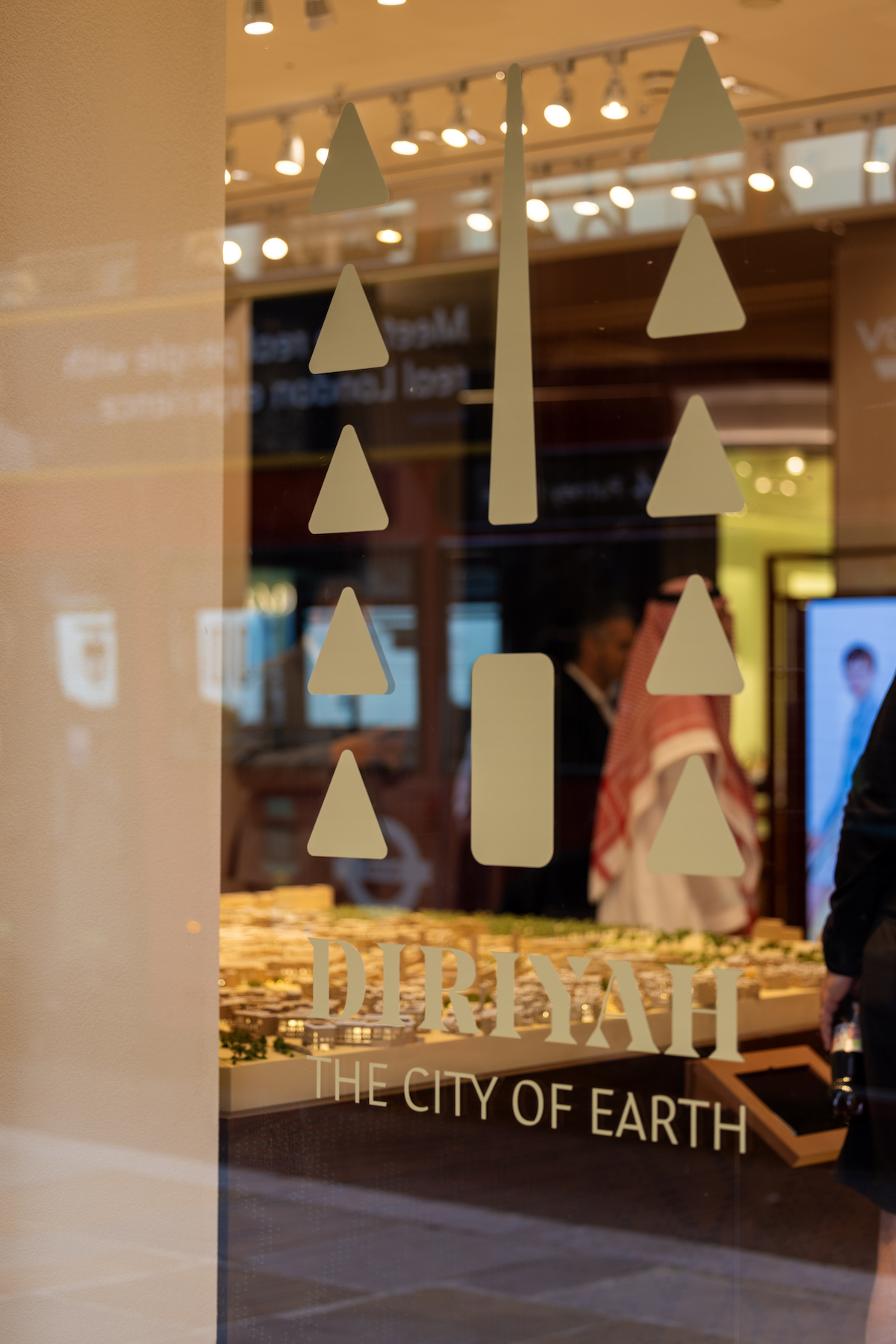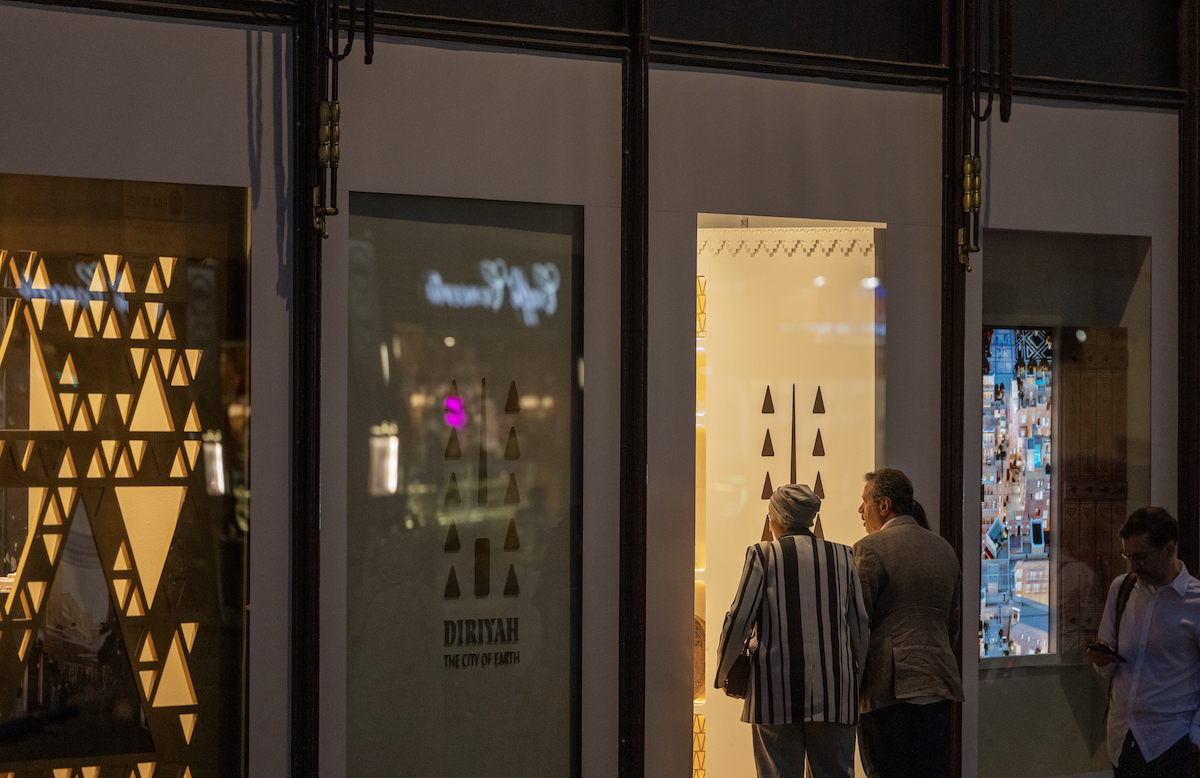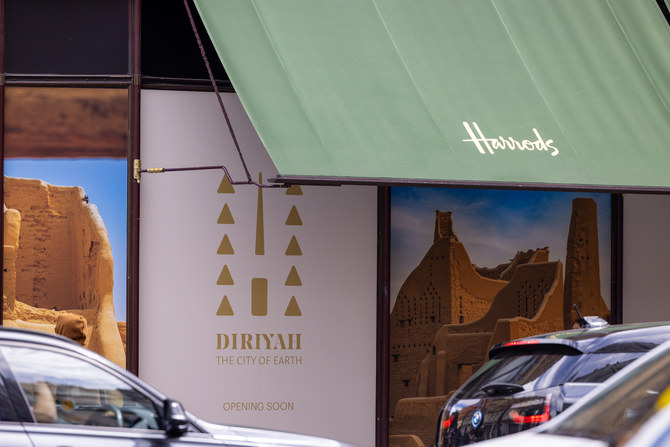LONDON: Diriyah Company is bringing a taste of Saudi culture and heritage to upmarket London department store Harrods this month, in the form of an exclusive pop-up exhibition highlighting the $63 billion mega-development project underway in Diriyah, the historic birthplace of the Kingdom.
The immersive experience, which opened on Monday and continues until July 26, aims to attract the attention of the 450,000 people expected to visit Harrods this month. The centerpiece of the event is a display featuring the master plan for the ambitious urban development project, which when complete will be six-and-a-half times the size of Monaco. It will feature hotels, four metro stations, and extensive retail and commercial office spaces.

The centerpiece of the event is a display featuring the master plan for the ambitious urban development project. (Supplied)
Diriyah Company has worked with the Harrods team to transform the space into an exhibition that tells the story of Saudi heritage and architecture, incorporating elements of the traditional Najdi architectural style in a warm color palette of yellows, oranges and browns. A highlight of the event is a showcase of 350 residences developed by luxury brands Ritz Carlton, Baccarat and Corinthia.
“These are the best of the best to collaborate with,” Diriyah Company’s chief marketing officer, Kiran Jay Haslam, told Arab News, adding that each brand brings something unique to the project.
The Baccarat residences will be notable for their sophisticated fusion of modern luxury and classic French elegance, incorporating opulent materials and Baccarat crystal accents, he said, while Corinthia will offer a more family-focused, homely feel, and the Ritz Carlton units will put an emphasis on the high levels of services available to residents. Representatives of Diriyah Company are on hand to explain the differences between the brands and highlight their unique selling points, he added, to help visitors understand what each has to offer.
In 2021, Saudi authorities issued a directive allowing non-Saudis who are legal residents of the country to buy single properties in the Kingdom, subject to approval by licensing authorities.
“In addition to that, the conversations that we know are taking place right now to open up real estate to foreign investment are really exciting for us,” Haslam said. “We’re looking very closely into when that will come to play.
“I think a lot of the projects in the kingdom will take on a new lease of life because of the ability for global interaction in these budgets. And … I think we’re really going to start to attract some significant talent to the kingdom.”
Six units are available for purchase at the Corinthia development and eight at the Baccarat. Haslam said sales at the Ritz Carlton development have moved more quickly than the company anticipated, and only 16 of the 106 residences are still available.

Visitors passing by Harrods take a look at Diriyah masterplan on display at the pop-up. (Supplied)
The pop-up event at Harrods follows Diriyah Company’s immersive exhibition at Outernet, an entertainment, arts and culture district in London. The showcases are part of a broader Saudi strategy to promote Diriyah on the global stage, with upcoming events planned in Los Angeles, New York, Sydney and Paris.
Haslam said the exhibition at Harrods has already received a positive response from early visitors, particularly those for whom the celebration of Arab culture hit close to home.
“We’re a very emotional project,” he said. “We’re a project that’s delivering some kind of unique quality in essence and pride of the Kingdom. And so it’s really great to be here and to have this interaction.”


































